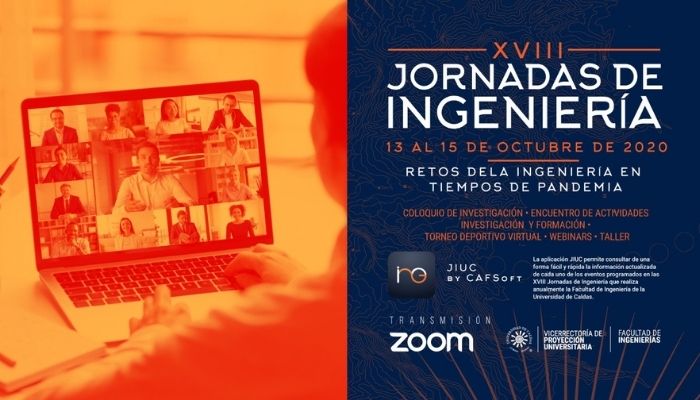After two years since the Q-Rapids project (H2020) finised on October 2019, we finally get published one of the systematic mappings conducted during the project. We have now published our study on quality related metrics and indicators for monitoring Agile development processes.
Doing some research...
Thursday, January 13, 2022
Thursday, February 18, 2021
El principio del fin?
Este lunes ha empezado el cuatrimestre, a pesar de la situación actual, he tenido suerte y he empezado presencialmente. Antes de clase, estaba tomando un café en la terraza del bar de la FIB, de cara a los aularios, viendo las ventanas de las clases vacías y he tomado conciencia de que puede que sea mi último primer día. Estaba ahí con mi café y lo único que podía pensar era que me encanta lo que he hago aquí.
Todo empezó hace 16 años, en esta misma plaza, en las escaleras en las que encontré con Marc, que de manera inocente me preguntó si había pensado volver a la universidad, esta vez para estar al otro lado del aula. Profesora? nunca se me había pasado por la cabeza! y ahí fue cuando empezó todo.
Y aquí estoy, 16 años después delante de esas mismas escaleras, viendo como ese proyecto se me está escurriendo de las manos. Ahora toca disfrutar estos meses como si fueran los últimos, porqué ahora sí que puede que lo sean.
--- The beginning of the end......
The semester started this Monday, I was lucky and I started with a face-to-face session. Before starting the class, I was having a coffee on the FIB bar terrace and I realised that that could be the last first day. I was there, with my coffee and I only was able to think that I loved what I do here.
All started 16 years ago, in this exact location, when I met Marc and he asked me if I considered the possibility to return to the university to be on the other side. Me being a teacher? That was never in my plans, but it was when my new career started.
And here I am, 16 years after in front of the same stairs, seeing how this career can end. Now, I have to enjoy the following months like they are the last ones, just in case!
Monday, January 25, 2021
For the first time (REJ)
After all these years working in the field of Requirements Engineering, I finally have a paper accepted in the Requirements Engineering Journal. I find astonishing that I avoid this venue for so long.
The state-of-practice in requirements elicitation: an extended interview study at 12 companies
Cristina Palomares, Xavier Franch, Carme Quer, Panagiota Chatzipetrou, Lidia López, Tony Gorschek
Abstract. Requirements engineering remains a discipline that is faced with a large number of challenges, including the implementation of a requirements elicitation process in industry. Although several proposals have been suggested by researchers and academics, little is known of the practices that are actually followed in industry. Our objective is to investigate the state-of-practice with respect to requirements elicitation, by closely examining practitioners’ current practices. To this aim, we focus on the techniques that are used in industry, the roles that requirements elicitation involves, and the challenges that the requirements elicitation process is faced with. As method, we conducted an interview-based survey study involving 24 practitioners from 12 different Swedish IT companies, and we recorded the interviews and analyzed these recordings by using quantitative and qualitative methods. Several results emerged from the studies. Group interaction techniques, including meetings and workshops, are the most popular type of elicitation techniques that are employed by the practitioners, except in the case of small projects. Additionally, practitioners tend to use a variety of elicitation techniques in each project. We noted that customers are frequently involved in the elicitation process, except in the case of market-driven organizations. Technical staff (for example, developers and architects) are more frequently involved in the elicitation process compared to the involvement of business or strategic staff. Finally, we identified a number of challenges with respect to stakeholders. These challenges include difficulties in understanding and prioritizing their needs. Further, it was noted that requirements instability (i.e., caused by changing needs or priorities) was a predominant challenge. These observations need to be interpreted in the context of the study. We conclude that the relevant observations regarding the survey participants’ experiences should be of interest to the industry; experiences that should be analyzed in the practitioners’ context. Researchers may find evidence for the use of academic results in practice, thereby inspiring future theoretical work, as well as further empirical studies in the same area.Wednesday, November 4, 2020
Paper accepted in the Science of Computer Programming journal (SCP)
QaSD: A Quality-aware Strategic Dashboard for supporting Decision makers in Agile Software Development
Lidia López, Martí Manzano, Cristina Gómez, Marc Oriol, Carles Farré, Xavier. Franch, Silverio Martínez-Fernández, Anna Maria Vollmer
Monday, October 26, 2020
My first lecture in a conference
CONVOCATORIAS ANTE LA UNIÓN EUROPEA
I did my first lecture in a conference. I was invited to talk in the XVIII Engineering Days, in the Universidad de Caldas, Engineering Faculty, Manizales, Colombia.
I was asked to talk about my experience on H2020 European reseach projects. Due to the circumstances, I did it online!!






